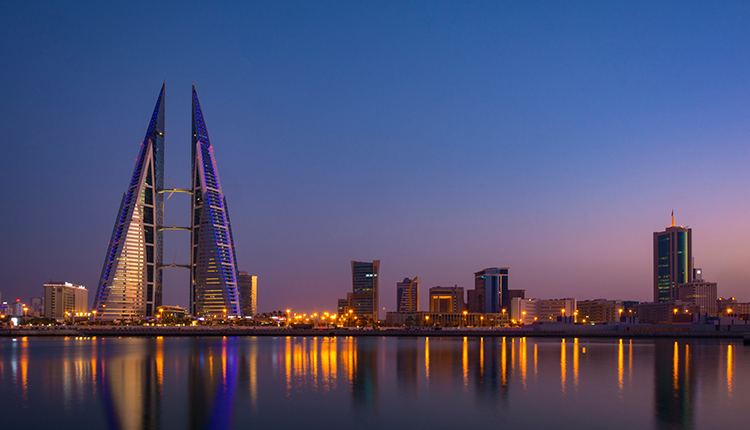Bahrain’s real estate market, despite facing a hit due to Covid-19, remains a good opportunity for investors with developers offering a wide range of incentives, according to an expert.
The sector, like many others, has been impacted by the pandemic but both developers and buyers are encouraged to continue with their contractual obligations, Gulf Daily news reported on Saturday.
“The outbreak of Covid-19 will no doubt have far-reaching implications on Bahrain’s real estate market – both in the short term and the long term,” international law firm Charles Russell Speechlys senior associate Reem Al Mahroos told the GDN.
“The retail and hospitality sectors are examples of areas that are experiencing a more immediate effect.
“Whilst the availability of capital or reprioritisation of government funds may be affected in the medium, long term.”
Ms Al Mahroos said a few retail and hospitality developments were delaying their opening or completion due to the current market changes.
“However, the majority of off-plan residential projects and master communities that we are involved with appear to be progressing.
“The market may be experiencing a downturn, this may also lead to good opportunities for investors.
“For example, a number of developers are offering incentives such as service charges relief and post-handover plans.”
She said there was no doubt that Bahrain, like any other country, was facing “unprecedented times and the biggest challenge to the market is uncertainty”.
“In terms of off-plan developments – both developers and buyers should continue to comply with their obligations given the degree of interdependence within a typical sale and purchase contract.
Milestone
“For example, a developer cannot request payment from a buyer unless it has achieved a required milestone, but it will require a buyer’s timely payment in order to assist with achieving the next milestone.”
In case this is not possible then both parties need to work together to try and find a mutually beneficial outcome.
“Bahrain’s real estate sector has been (and will continue to be) affected by the impact of the current pandemic; we are optimistic that Bahrain is more resilient today as a result of the reforms introduced over the past few years,” said Ms Al Mahroos.
She added there was no clarity as to whether Covid-19 constituted as a force majeure event, unless it’s mentioned in the contract in which case provisions of the Civil Code would apply.
“As such, unless the current pandemic falls within the definition in the contract or the parties are in agreement, then a developer will ultimately need to seek determination by a court to invoke force majeure, which is usually an action of last resort.”
Ms Al Mahroos said the Real Estate Regulatory Authority’s (Rera) role and regulating the sector will be tested in the coming months.
“Rera introduced regulations over the past few years that specifically address off-plan developments with a view to minimising risks of delays and stalled projects,” she said.
The reforms included obligations for developers to open an escrow account, obtain a licence to sell and market off-plan units and ability by a buyer to enforce certain remedies if a developer delays or stalls completion.
One of the thorny issues in the real estate sector that the government is dealing with is the file of stalled projects.
A judicial committee is currently dealing with three unfinished projects: Marina West, Sunset Hills and Elegant City Development Project.
“Stalled projects are complex matters,” said Ms Al Mahroos.
“Given the multiple stakeholders involved and construction considerations, they are difficult to resolve even in the best of times.”
She said her firm was not directly involved with any of the stalled projects in Bahrain.
“However, we note that projects such as Marina West fall within the scope of the Stalled Projects Law (Legislative Decree No 66 of 2014) and are required to go through a formal resolution process.”
Regulations
She said the current regulatory environment is geared towards protecting investors and improving market confidence.
“As such, achieving a resolution on the remaining stalled projects will no doubt still be of importance but it is fair to say that the changing market dynamics caused by the impact of the current pandemic is likely to have an adverse effect on the viability of many of the stalled projects,” she said.
However, despite the challenges the real estate sector is “more resilient today” due to the ongoing reforms and regulations, she added.
The GDN reported last week that a new study was launched by the Bahrain Property Development Association in co-operation with the Bahrain Chamber of Commerce and Industry (BCCI) to review the challenges facing the real estate sector during the pandemic.
Separately, the BCCI carried out a survey covering 1,180 business owners to assess the damage caused by Covid-19.
The findings revealed that 27 per cent of the respondents said they expected closure and bankruptcy in the real estate and construction sector.
A total of 72pc of businessmen expected a significant decrease in their revenues and 55pc expected to cease operations within six months.


